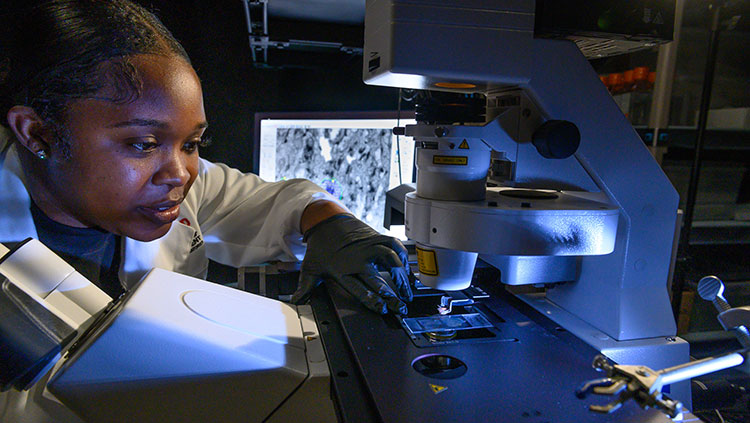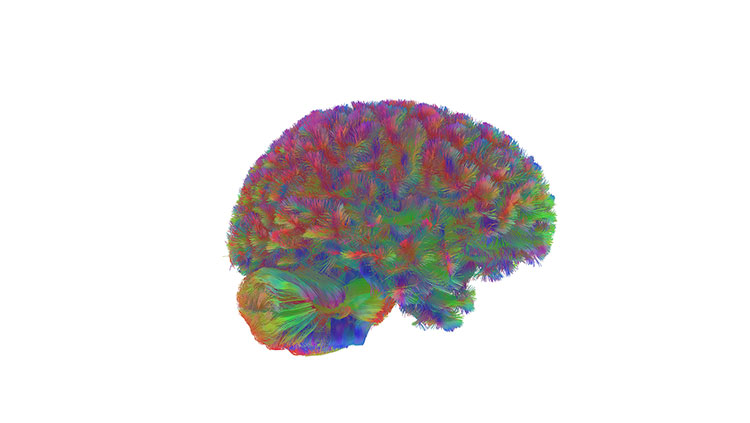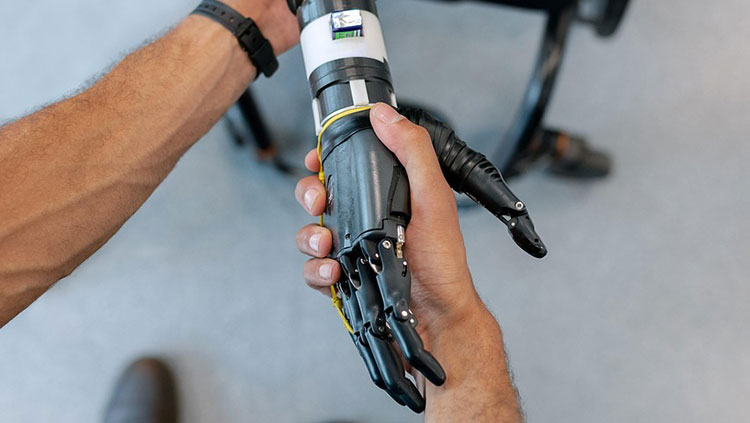ICYMI: How Internet Addiction May Change Adolescent Brains
- Published17 Jul 2024
- Author Bella Isaacs-Thomas
- Source BrainFacts/SfN

Internet addiction among pre-teens and teens may alter the developing adolescent brain by changing how neural networks communicate with each other, according to new research published last month in PLOS Mental Health.
Researchers at University College London reviewed the results from a dozen fMRI studies examining brain activity among children and teens between ages 10 and 19 who were diagnosed with internet addiction. People with internet addiction experience an uncontrollable impulse to go online, which takes a toll on their social lives, mental health, and physical health. The researchers examined the association between internet addiction and changes in how connections function between various networks in the brain, including those involved with cognition, memory, reward, and decision-making. They concluded that functional changes can occur across these brain networks, affecting adolescent behavior and development. Researchers noted more information is needed to fully understand the neural causes and effects of internet addiction.
Adolescence is a critical period of development for the brain. During those years, kids are heavily shaped by their experiences and their environment. This time is optimized for learning, but it can also prompt young people to engage in more risky or impulsive behavior, like spending excessive time online. Educating parents on internet addiction could prepare them to more effectively intervene if their kids begin to show signs of the condition.
Big Picture: Adults and adolescents in the United States are spending more time online. Around half of teens say they use the internet “almost constantly,” according to a 2023 report from Pew Research Center. That’s about double the percentage of kids who said the same in a Pew survey that took place between 2014 and 2015. Although clinicians in the United States don’t formally diagnose people with internet addiction, the condition is recognized by countries like China and South Korea. Experts in the U.S., however, have sounded the alarm on the potential consequences of social media use among teens.
Read More: How internet addiction may affect your teen’s brain, according to a new study. CNN
More Top Stories
- A biodegradable, implantable sensor was designed to monitor important health indicators in the brain with no need for surgical removal. Nature
- Mitochondrial activity, which generates energy for all cells including brain cells, may be more robust in people who report having more positive life experiences than negative ones. Scientific American
- A short fMRI brain scan could help doctors find early signs of dementia. The Guardian
- The abundance of certain bacteria in the gut microbiome may influence a person’s risk of developing food addiction. NBC News
- New research suggests that certain cells in the medial entorhinal cortex are key to learning how to carry out timed tasks with accuracy. ScienceAlert
- A study of 90 Black women in the U.S. found a link between racial discrimination experience, rumination, and faster biological aging — increasing risk of brain health issues. Everyday Health
- Among rats, lack of sleep disrupts activity in the hippocampus that is essential to memory formation. Newsweek
- Anthropologists determined an ancient, young Neanderthal likely had Down syndrome, based on analysis of the child’s bones. Science Magazine
CONTENT PROVIDED BY
BrainFacts/SfN
References
Also In Neuroscience in the News
Trending
Popular articles on BrainFacts.org


.jpg)






.jpg)









